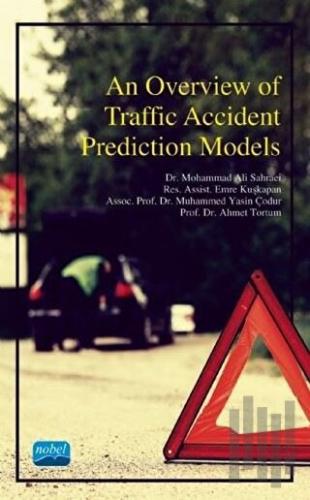
The major goal of this book is to review and determine the existing traffic accident prediction methods as well as aspects behind traffic crash that could be useful to decrease crash frequency and intensity (injury and death) in future, therefore saving numerous lives and wealth. The evaluation of the studies that was carried out in this research for a period of 21 years from 2000 which has led to several remarkable findings for traffic accident prediction models.
There are numerous investigation in the literature to predict traffic crash (i. e. frequency, severity and risk factors) based on sixteen methods including regression, Artificial Neural Network (ANN), random forest, mathematics and probabilistic, spatial, Markov model, decision tree, time series, hybrid methods, classification, Stochastic Gradient Boosted Decision Trees, Genetic Algorithms (GA), fuzzy, data mining, gray system theory and Bayesian Network. Further comparisons determined that regression and ANN models were the most powerful methods for traffic accident prediction (i. e. accident frequency, severity and risk factors) followed by mathematics and probabilistic, hybrid, Bayesian network and spatial methods. In contrast, Markov, GA, Gray system, GBDT and data mining were determined as models with minimum usage.
The major goal of this book is to review and determine the existing traffic accident prediction methods as well as aspects behind traffic crash that could be useful to decrease crash frequency and intensity (injury and death) in future, therefore saving numerous lives and wealth. The evaluation of the studies that was carried out in this research for a period of 21 years from 2000 which has led to several remarkable findings for traffic accident prediction models.
There are numerous investigation in the literature to predict traffic crash (i. e. frequency, severity and risk factors) based on sixteen methods including regression, Artificial Neural Network (ANN), random forest, mathematics and probabilistic, spatial, Markov model, decision tree, time series, hybrid methods, classification, Stochastic Gradient Boosted Decision Trees, Genetic Algorithms (GA), fuzzy, data mining, gray system theory and Bayesian Network. Further comparisons determined that regression and ANN models were the most powerful methods for traffic accident prediction (i. e. accident frequency, severity and risk factors) followed by mathematics and probabilistic, hybrid, Bayesian network and spatial methods. In contrast, Markov, GA, Gray system, GBDT and data mining were determined as models with minimum usage.










